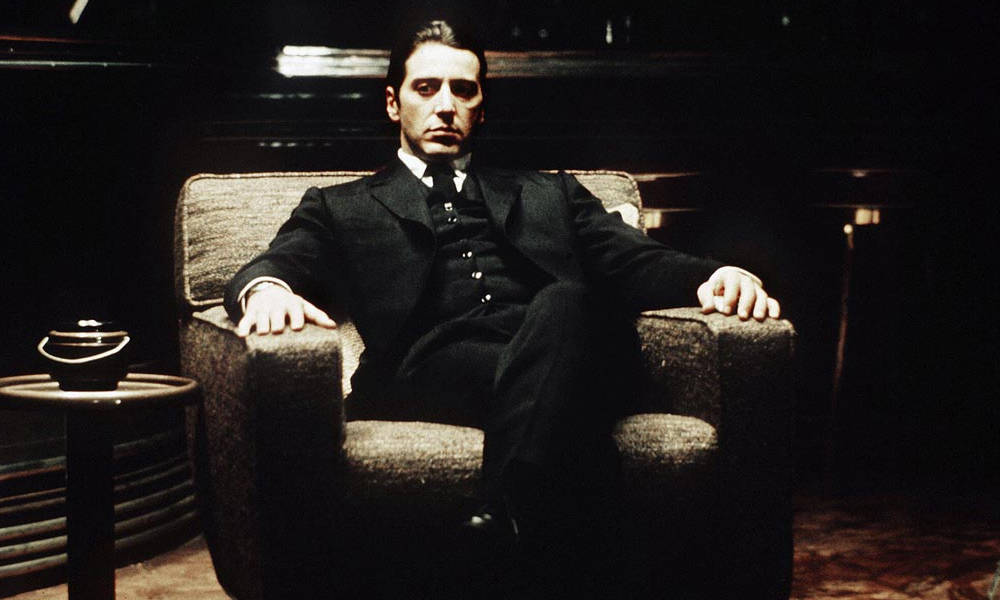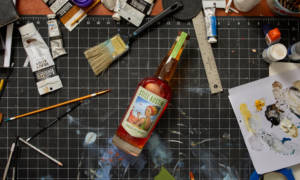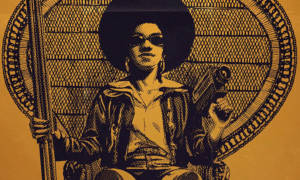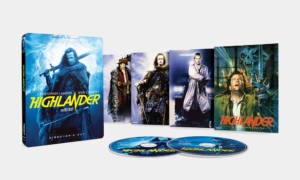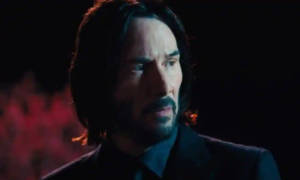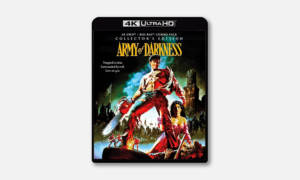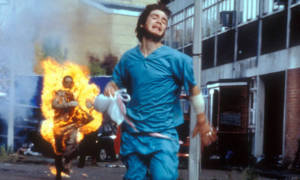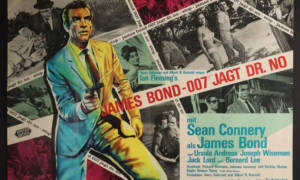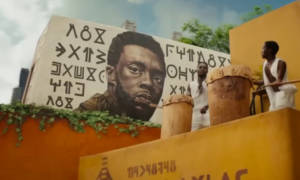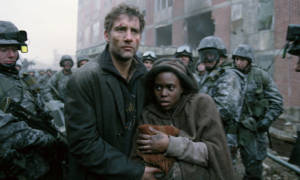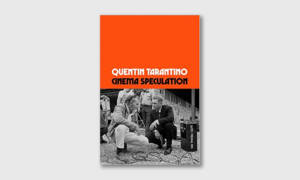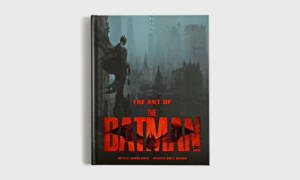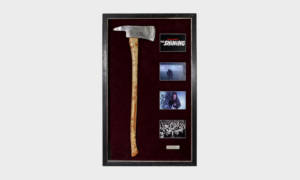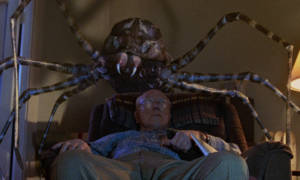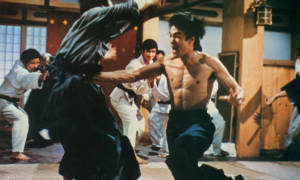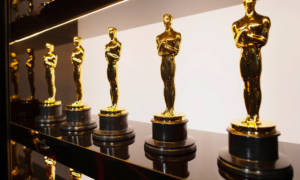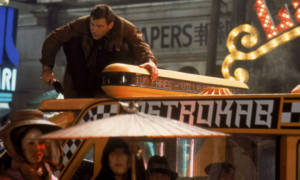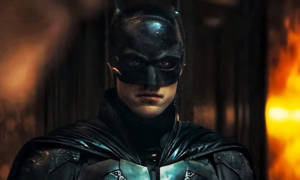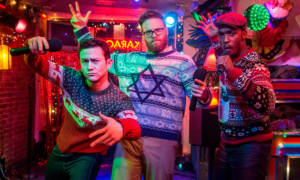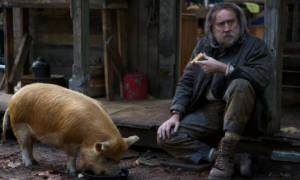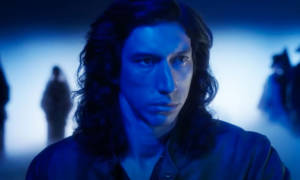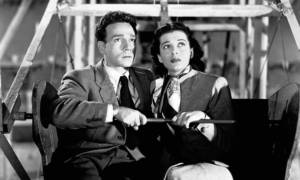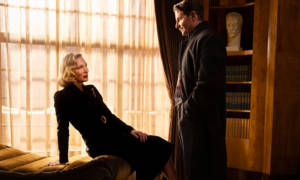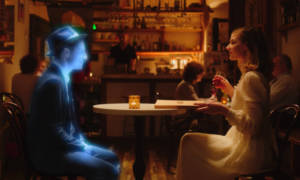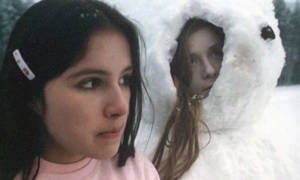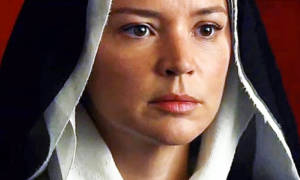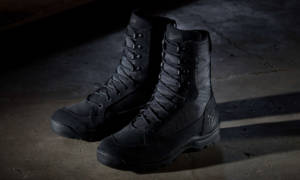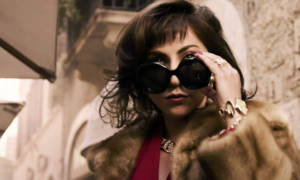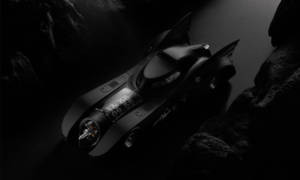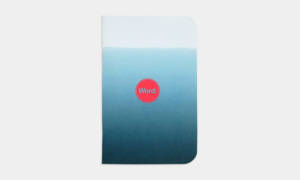“The book is always better than the movie,” goes the crusty old precept about book-to-movie adaptations. In a certain percentage of cases, this may be true. In others, it may not. For the most part, books and the movies based on them are rarely better or worse than one another. They’re usually just different, and frankly, different is more important than “better” or “worse”. If a movie adapts a book without changing anything except for the medium, then what’s the point?
The best movies based on books are worth singling out not because they’re superior to the source material, but because they have an individual personality. They tell the same story in a new way, not just because they’re movies but because the people responsible for making them represent the book’s themes and characters with distinction from the book itself. Here are the best movies based on books.
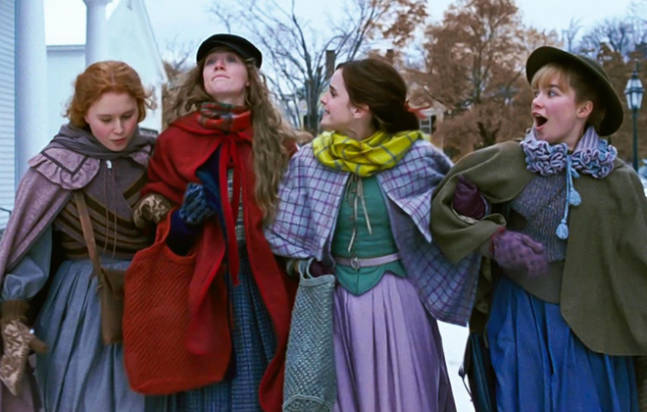
Little Women (Greta Gerwig, 2019)
Since the birth of the movies, Louisa May Alcott’s coming-of-age masterwork has been adapted to screen 7 times. Everybody has their preference – Gillian Armstrong’s 1994 take is among the most popular – but Greta Gerwig’s version, which turns 3 this winter, is a knockout. Gerwig builds her cast around Saoirse Ronan with Eliza Scanlen, Emma Watson, Laura Dern, Chris Cooper, Timothée Chalamet, Bob Odenkirk (who swoops in with one of the top five great moments of his career), and of course Florence Pugh, the film’s breakout star. The production design, from set to costumes, is exquisite. And then there’s the clincher, the stamp Gerwig puts on the material. Making a classic “your own” is a difficult feat, and Gerwig finds a clever, seamless way to freshen up Little Women for the 2010s that also fits nicely into her interests as an artist.
Watch: Youtube
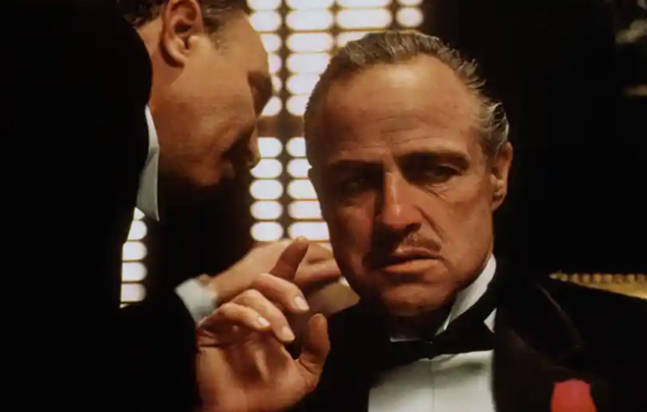
The Godfather Trilogy (The Godfather, Francis Ford Coppola, 1972;The Godfather Part II, Francis Ford Coppola, 1974; The Godfather Part III, Francis Ford Coppola, 1990)
The common wisdom is that Mario Puzo’s original novel, despite its bestseller status in 1969, pales in comparison to Francis Ford Coppola’s adaptation. Maybe so. It’s in the eye of the beholder. But Coppola worked with Puzo to adapt The Godfather, then The Godfather Part II, and then again to spin The Godfather Part III from whole cloth. Common wisdom also singles out the third picture as the worst in the trilogy, but the simple act of turning out 2 movies from one novel, and then a third from those first 2 movies, is a remarkable achievement anyways. That The Godfather influenced cinema throughout the rest of the 1970s and beyond, and continues influencing pop culture today, is another, rarer kind of achievement, one that cements the film, and Coppola’s name, in the medium’s history.
Watch: Amazon
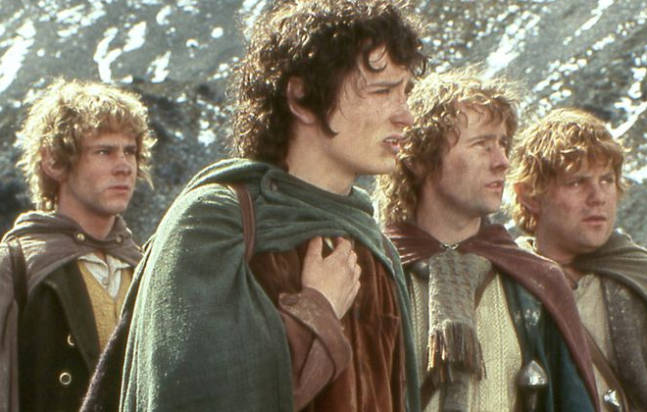
The Lord of the Rings Trilogy (The Fellowship of the Ring, Peter Jackson, 2001; The Two Towers, Peter Jackson, 2002; The Return of the King, Peter Jackson, 2003)
Purity tests in adaptations of geeks’ sacred cows are a drag. Peter Jackson, working in tandem with Phillipa Boyens and his better half, Fran Walsh, took liberties with J.R.R. Tolkien’s genre-defining tomes, and if he took a few too many when he really didn’t need to, well: Who cares? The Lord of the Rings trilogy was, prior to Jackson’s efforts, thought to be “unfilmable,” an epic too big to fit even in a multiplex. Jackson’s changes feel more or less inconsequential given the challenge before him. He did it. He, Walsh, and Boyens played with timelines, they tinkered with some characters and erased others, sure, but it doesn’t matter. These films are as close to Tolkien’s original vision as we’ll ever get, and liberties or no, they’re spectacular, and 20 years after Fellowship’s release, they still hold up as some of the best movies based on books.
Watch: HBO Max
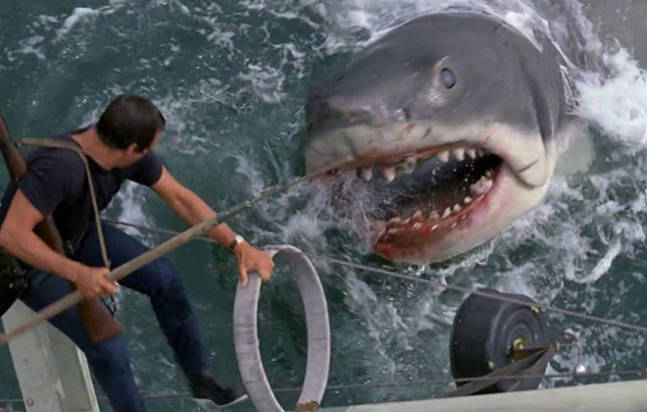
Jaws (Steven Spielberg, 1975)
Steven Spielberg, one of the best to ever do it, took Peter Benchley’s superb 1974 novel, adjusted the things he didn’t like about it, and a year later planted the seed for what Star Wars would later cultivate into the “blockbuster” in 1977. The movies, being a younger artistic form than literature, had room to grow and breathe in the 1970s, not to mention ample opportunity for innovation. Jaws is one of the best examples of how filmmakers, in past decades, could take even very well-received books and then reimagine them with groundbreaking effect. In 2022, the movie still works. 59 minutes in, when we get our first full glimpse of the fish in an overhead shot as it closes in on a hapless boater, we’re reminded how Spielberg made audiences afraid to go in the water.
Watch: Apple TV
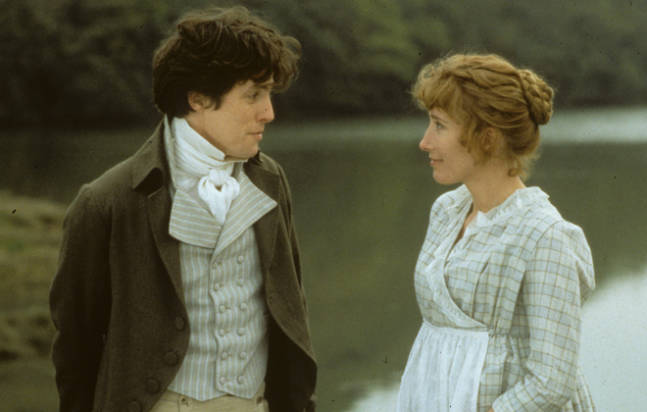
Sense and Sensibility (Ang Lee, 1995)
Ang Lee is a distinctive filmmaker. If someone put on one of his movies without telling you who directed it, you’d figure it out pretty quickly. But Lee is actually secondary to the success of Sense and Sensibility. Chief credit for what makes this 1995 update of Jane Austen’s seminal romance work should go to Emma Thompson, a clear Austen devotee who nonetheless found spots in the novel where she could either sand the edges down or hone them. In blunter terms, she made the story sexier while diluting its elements of patriarchal sexism. The results of her modern approach to a standard of romantic literature made an impact 27 years ago that has shaped all movies of its make since.
Watch: Apple TV
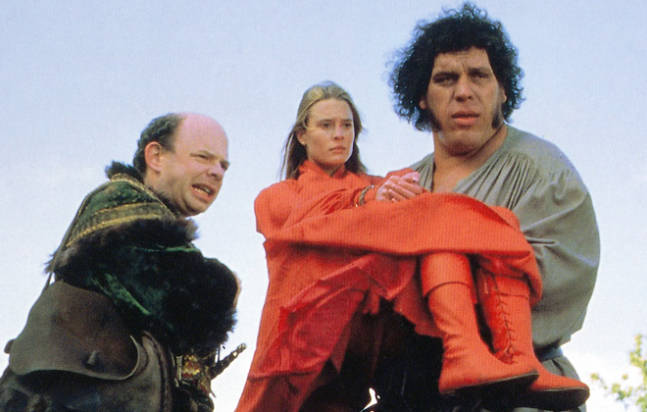
The Princess Bride (Rob Reiner, 1987)
Arguably the most quotable, or at least most quoted, movie of all time, The Princess Bride gets around its central problem the Peter Jackson way before Peter Jackson was making movies several hundred grades higher than “trash.” (Good trash, of course.) Rob Reiner’s liberties are more extreme, of course, but William Goldman’s monumental book is extreme too. Besides: The liberties are all Goldman’s. He wrote the screenplay himself out of what can be kindly qualified as the “good” parts of his own novel, streamlining this enduring love story into one of the greatest pieces of pop entertainment the movies have ever produced.
Watch: Hulu
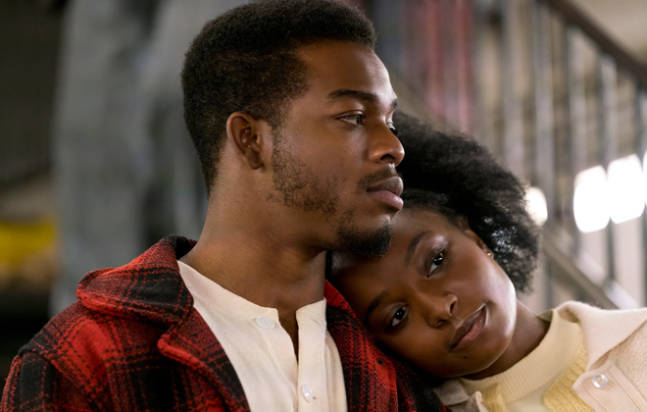
If Beale Street Could Talk (Barry Jenkins, 2018)
Barry Jenkins might be the only contemporary filmmaker, or maybe the only filmmaker of his generation, capable of reading James Baldwin’s extraordinary 1974 novel about American racism and injustice going hand-in-hand, and reshape it with a gentle, tender hand into cinema. On a molecular level there’s nothing about If Beale Street Could Talk that’s “gentle,” being the story of a young Black American man falsely accused of rape and jailed with little hope of a fair trial, much less release. Baldwin was not the type of man to pull his punches. But Jenkins manages to keep his picture’s edges as sharp as Baldwin’s prose while softening what he puts at the center of the frame, especially his leads, KiKi Layne and Stephan James, and his two key supporting players, Regina King (who rightly won an Academy Award for her work here) and Brian Tyree Henry.
Watch: Hulu
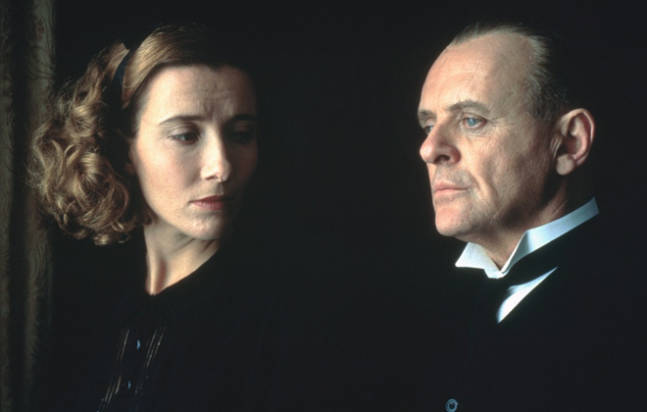
The Remains of the Day (James Ivory, 1993)
A change in perspective can make all the difference in book-to-film adaptations. Kazuo Ishiguro’s book, published in 1989, roots itself in the perspective of his protagonist, the English butler Stevens. James Ivory pulls that perspective back to encompass all of the characters in the story, not at Stevens’ expense per se, and to the effect of broadening the story’s time and place. Again, the key here is what separates the book from the film, not what makes one better than the other. Ivory’s goal isn’t to replace Ishiguro’s book as much as to honor it with his own ideas and style.
Watch: Apple TV
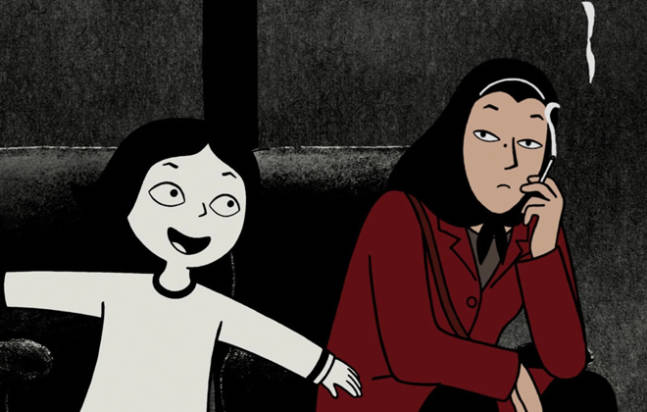
Persepolis (Marjane Satrapi & Vincent Paronnaud, 2007)
We will allow ourselves one exception to the no-comics rule with Persepolis, Marjane Satrapi’s co-adaptation of her own autobiographical comic series, orchestrated with her pal Vincent Paronnaud. It is, after all, a bande dessinées, a French comic. Forgive us our snootiness. It’s our list. We do what we want. And besides that, Persepolis is a stunning movie. The 1979 Iranian revolution isn’t a colorful, playful matter, so Satrapi drains all of color from the story, leaves it black and white, and uses animation to give the awfulness she witnessed and went through an alchemical liveliness. There’s a pulse here, but it isn’t fun. Remember how much we liked Flee in 2021? Think of Persepolis as the other half of a double feature with that movie, and you’ll get a sense of what Satrapi’s all about.
Watch: Apple TV
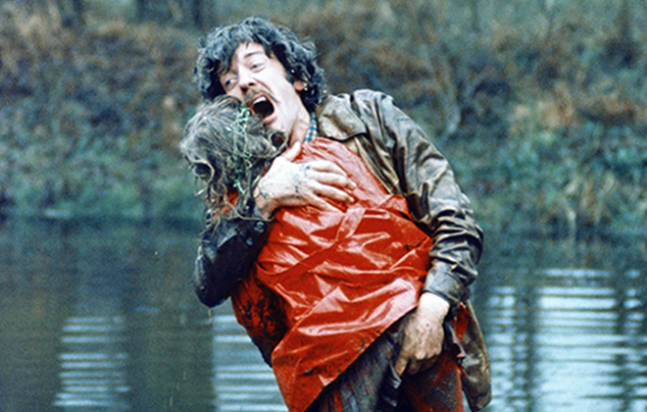
Don’t Look Now (Nicolas Roeg, 1973)
It’s easy to forget that Nicolas Roeg used a Daphne du Maurier short story as the basis for his film, in part because his film is one of the absolute best horror films ever made; it outsizes its source material, though doesn’t necessarily outclass it. Du Maurier is hard to beat. But Roeg’s Don’t Look Now constructed images that have echoed loudly through horror’s consciousness since its release, and taught audiences and future filmmakers a valuable lesson in how to mount dreadful paranoia for just shy of 2 hours before paying it off with tragedy.
Watch: Apple TV
